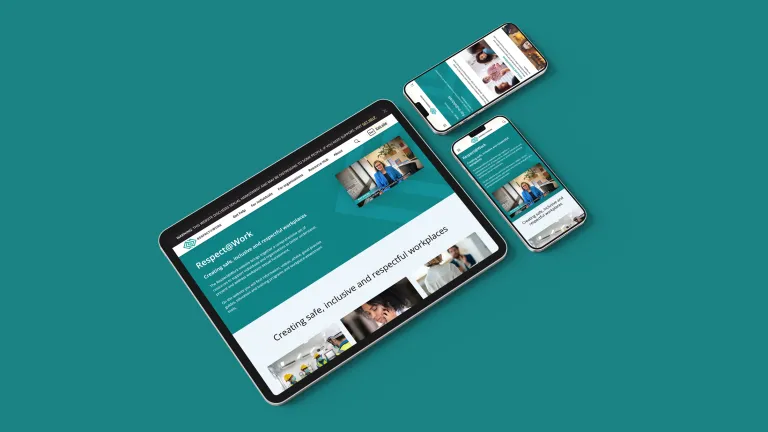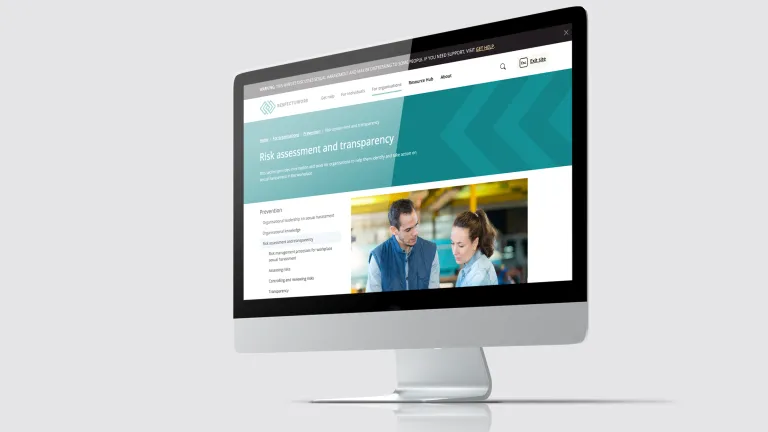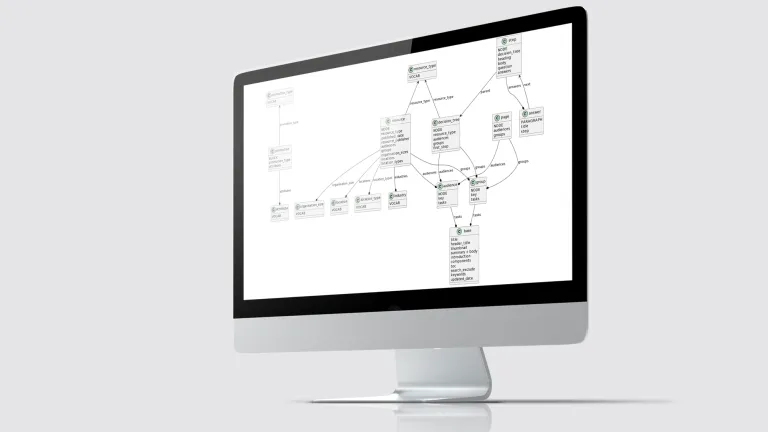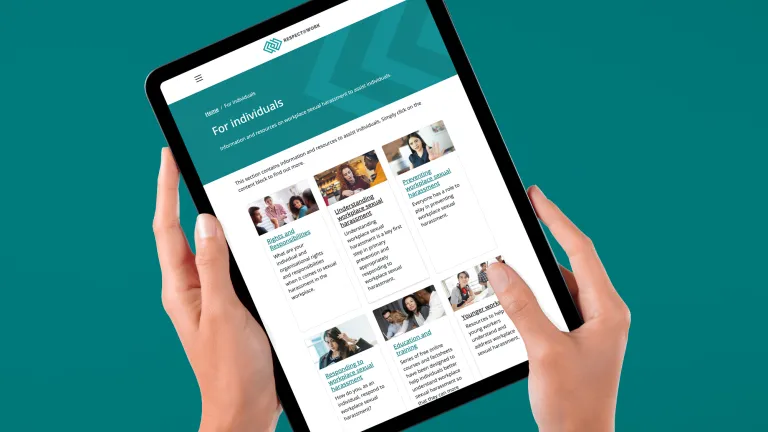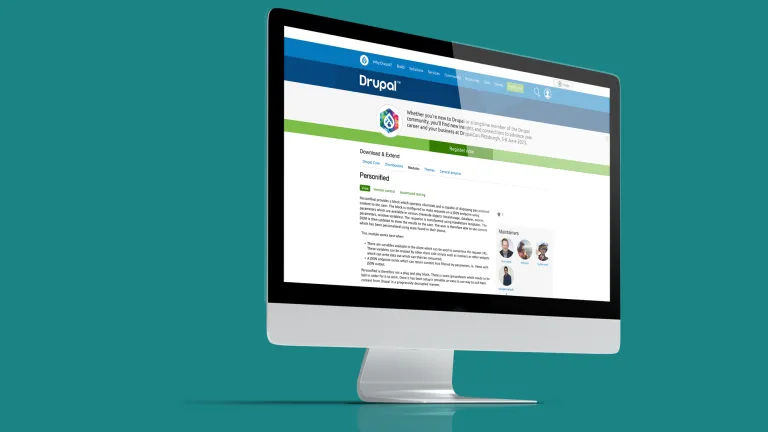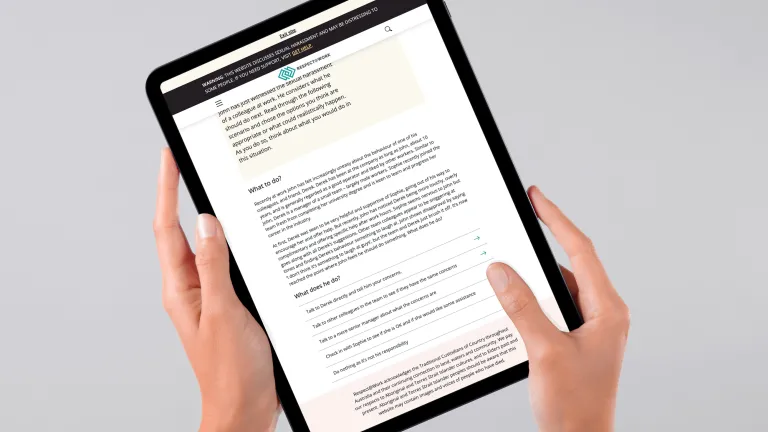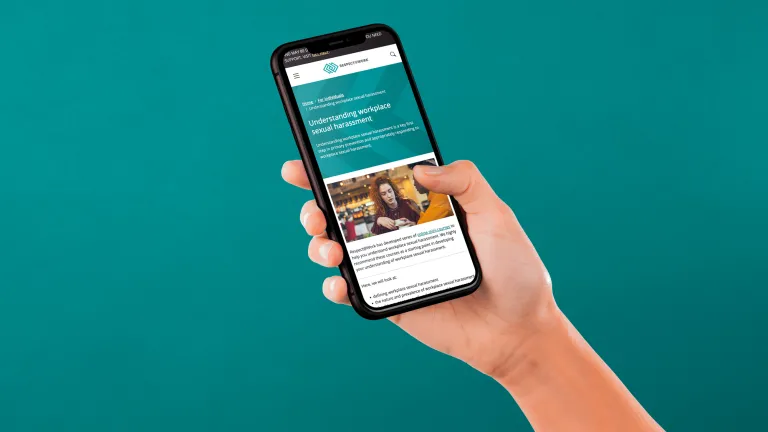Overview
Convivial DXP | Discovery | UX/UI Design | Content modelling | Segmentation | Personalisation
In early 2022, Morpht was contracted by the Australian Human Rights Commission (AHRC) to undertake the development of a new website in alignment with the Respect@Work Recommendation 48. This initiative aims to support organisations in addressing sexual harassment in the workplace, as outlined in detail at https://apo.org.au/node/311776.
The primary objective of the project is to create a platform that serves as a public voice for the Workplace Sexual Harassment Council. The website will play a crucial role in providing valuable information, education, and resources for workers and employers across Australia.
This undertaking represents a collaborative effort involving unions, employers, and employer associations. Together, they seek to establish the website as the go-to destination for employers and employees seeking comprehensive guidance and assistance in preventing and addressing sexual harassment in the workplace.
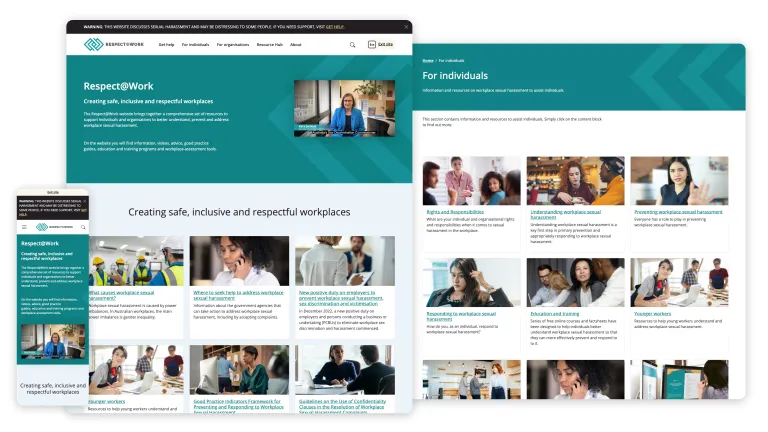
The challenge
The solution needed to meet several challenges including:
- A good understanding of the main audience groups and how personalisation delivered by a DXP integration could improve engagement with the site content
- Create a user-focused platform that is robust and provides a scalable solution for future enhancements and capacity to advance with digital maturity
- Capacity to provide the tooling Respect@Work staff needed to enhance the development of targeted and meaningful content in the future
- Ensure that best-of-breed coding practices are adhered to and that accessibility compliance is considered every step of the way.
The outcome
Morpht successfully developed a new website that serves as a public voice for the Workplace Sexual Harassment Council and provides valuable information, education, and resources for workers and employers across Australia. By implementing a light-weight personalization solution, Morpht ensured that users receive tailored content based on their interests and needs. The innovative 'Personified' module developed by Morpht revolutionizes content generation by combining user variables with JavaScript-based templates to deliver personalized results. Overall, the project successfully achieved its objectives of delivering a user-focused platform, ensuring scalability for future enhancements, and adhering to best coding and accessibility practices.

A huge thanks to you and the team for your terrific work on Respect@Work – I often say the best decision we made on the journey was choosing Morpht as the developer for the project. You should be very proud of your work here and the impact it is, and will in the future, have on Australian workplaces.
Peter Downs | Senior Policy Officer, Respect@Work


